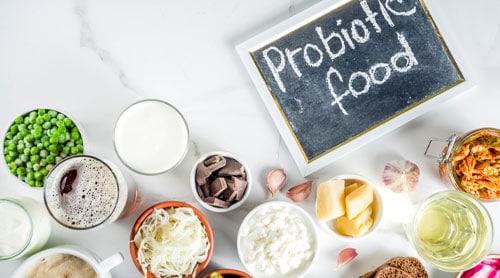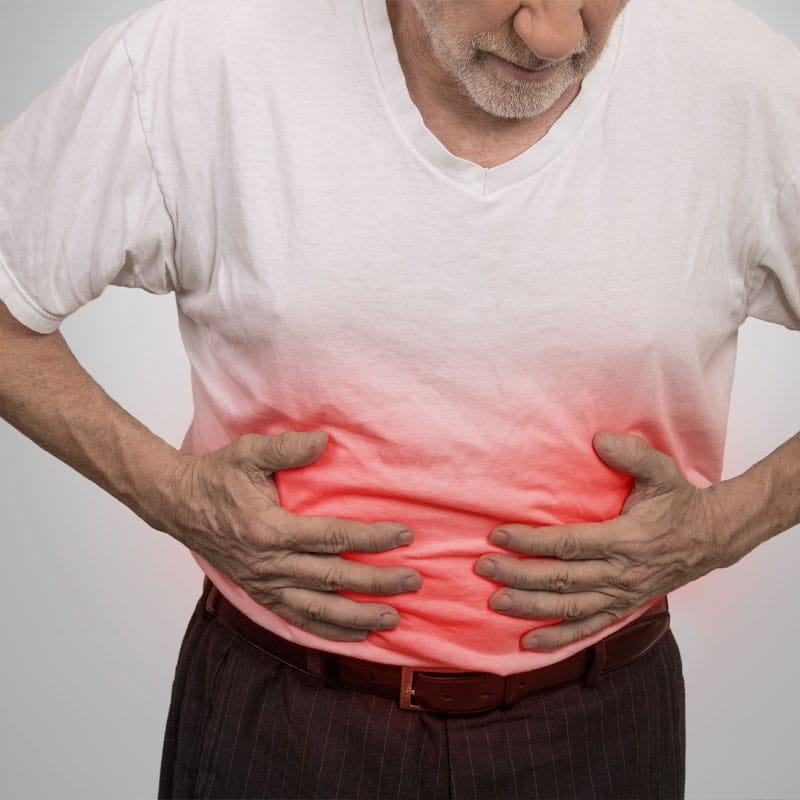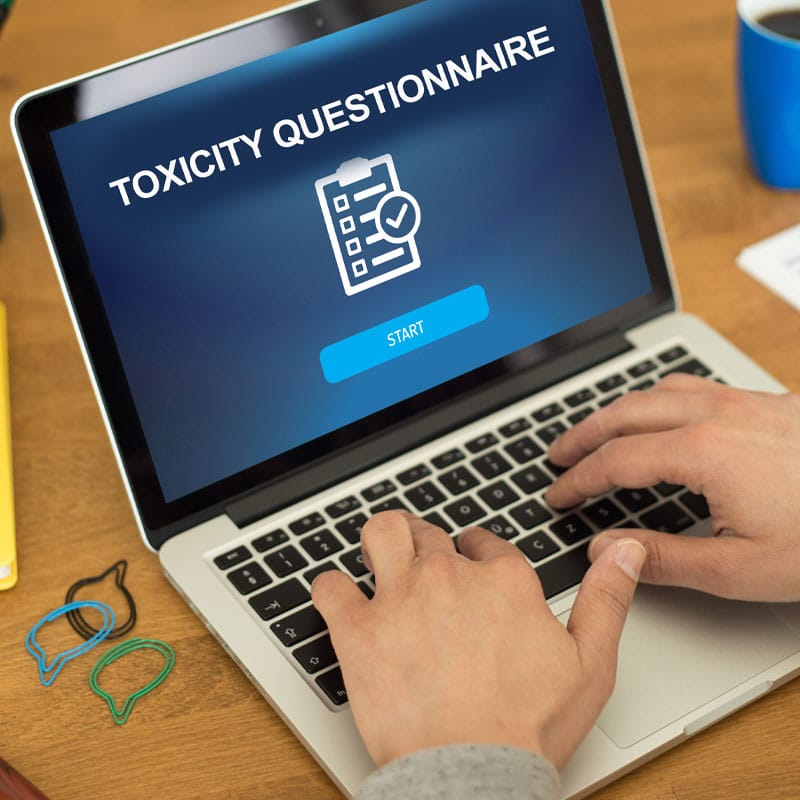index
Stomach gurgling can help you determine exactly what is going on in your body. Stomach gurgling is described as the uncomfortable feeling that occurs when your stomach feels like it is going to erupt. It occurs when food, gas, and liquids pass through the stomach and travel into the small intestine. Typically, stomach gurgling occurs when you eat too quickly, or you eat something that did not agree with your system. If your stomach gurgling becomes a recurring theme, it can be a sign of a digestive problem.

Causes of Stomach Gurgling
Stomach gurgling can be caused by something as simple as hunger or gas build up, or it can be a sign of a digestive disorder. Let’s take a look at some common causes of stomach gurgling.
- Celiac Disease and Non-Celiac Gluten Sensitivity – Celiac disease occurs when the immune system overreacts and begins attacking the lining of your small intestine when gluten is consumed. Non-celiac gluten sensitivity is a common food sensitivity to gluten causing widespread inflammation within the digestive tract. Gluten is a protein found in a variety of grains, including wheat, barley, and rye. Avoiding gluten may help provide relief from stomach gurgling.

- Food Intolerances – A food intolerance occurs when the immune system becomes confused and begins attacking your digestive tract when a specific food is consumed. This can cause a number of symptoms including a gurgling stomach. If you are experiencing frequent stomach gurgling, it may be advisable to do a food sensitivity test. You can also keep a food diary and try to pinpoint foods that may be causing your discomfort. Try to remove these foods from your diet and see if that relieves your symptoms.
- Food Poisoning – Food poisoning occurs when you consume contaminated food. Some of the most common causes of food poisoning are bacteria, viruses, parasites, chemicals, and mold. One of the biggest concerns related to food poisoning is dehydration. It will help to choose a drink with electrolytes, take a probiotic supplement, and eat a bland diet that is gentle on your stomach until you begin to feel better.
- Gas – If you eat too quickly it can cause you to swallow too much air, resulting in excess gas. You can counteract this by taking a few deep breaths before you dig into your meal. Then, take your time, chew your food really well, and focus on eating to decrease the amount of air your swallow.
- GERD – GERD (Gastroesophageal reflux disease) occurs when the muscle between the stomach and esophagus does not properly close, which allows stomach acids and the contents in your stomach to flow upward into the esophagus. Being overweight, smoking, and consuming too much caffeine, alcohol or fried foods can worsen GERD. Eat smaller meals, lose excess weight, and stop smoking to help prevent and relieve GERD.
- Hunger -The first thing to consider when your stomach gurgles is how long it has been since you have eaten. Hunger is one of the most common reasons for stomach gurgling. If you have not eaten in a few hours, try eating a small meal to see if it relieves your stomach gurgling.

- Indigestion – Indigestion causes a burning sensation in the upper stomach, a churning or gurgling sensation in your stomach, gas, nausea, and a feeling of becoming too full after eating only a small amount of food. Most people take an antacid to relieve their indigestion; however, there are several natural remedies that can help relieve your indigestion, including peppermint tea, chamomile tea, apple cider vinegar, ginger, fennel seed, licorice root, baking soda, and lemon water.
- Irritable Bowel Disease – Irritable bowel syndrome affects approximately 15 percent of the US population. IBS causes symptoms including bloating, abdominal pain, constipation, diarrhea, and stomach gurgling. Increase your fiber consumption, eat regularly, exercise daily, and eliminate foods that cause your stomach pain.
- Stress – Did you know that both the brain and gastrointestinal tract share many of the same nerve connections? There is a gut-brain connection. Because of this, when you experience stress, it can significantly impact your digestive system. When stress hormones are released in the body, it can cause digestive problems including stomach churning, nausea, and indigestion. Stress relief techniques can decrease the stress levels in your body and reduce stomach gurgling.
- Viral Gastroenteritis – Viral gastroenteritis, also known as the stomach flu, occurs when you develop an infection in your intestines. When you have this infection, it can cause watery diarrhea, nausea, vomiting, fever, abdominal cramping, and gurgling. Eating a bland diet, drinking plenty of fluids, and resting will help you overcome viral gastroenteritis.

Natural Remedies for Stomach Gurgling
Stomach gurgling can be caused by something as simple as hunger or gas; however, it can also be caused by a medical condition. If you are experiencing unexplained weight loss, fever, dehydration, severe pain, vomiting, or diarrhea, it is advisable to contact your functional medicine provider immediately. Some natural remedies include-
- Ginger – Ginger has been used for thousands of years in natural medicine to relieve a variety of digestive woes. If you are experiencing stomach gurgling, try some ginger. Ginger provides antiviral, antibacterial, and anti-inflammatory protection to reduce gas, improve your digestion, and relieve nausea.
- Probiotic – Probiotics are living bacteria that are beneficial to the digestive tract. These bacteria are found in fermented foods like yogurt, kimchi, and sauerkraut. In addition to this, taking a probiotic supplement can help fill the digestive tract with probiotics to improve your overall gut health.
- Stretching – Yoga or stretching has been shown to help relieve gurgling and trapped gas within the digestive tract. Massage your ascending and descending colon by first lying down flat on your back. Then hug your right knee into your chest and deep breath three times. Then repeat this on the left side.

Get Relief from Digestive Disorders
Stomach gurgling is never pleasant. Most of the time it causes temporary discomfort and resolves on its own. However, if you experience persistent stomach gurgling, it can be a sign that you have an underlying health issue. Our functional medicine experts specialize in digestive health and can help identify the root cause of your stomach gurgling. We will create a customized treatment plan to help heal your gastrointestinal tract and relieve stomach gurgling. This may include adjustments to your diet and lifestyle.


















